“Practical Criticism.”
I think that was the name of the tutorial. I’ve written about this tutorial in a thousand different drafts of a novel that I now have to wonder will ever see the light of day. It came close in 1998 but that’s another story. I do have a sabbatical coming in January and another novel coming out in 2025 that also took a long time. I am not an efficient writer. I meander here and there, pause and reflect, procrastinate - all of it. I told my creative writing students this week as classes started that I actually hung a sign on my desk while writing my latest novel, Werewolf Hamlet.
The sign said, “Remember! It’s for ten-year-olds. Give them a break!”
This was to encourage me from the compulsion to overwrite and overexplain every freaking detail of Angus Gettlefinger’s angst and worries in his fifth-grade life.
Anyway, it’s early morning in Birmingham with the light shining through the window on the red table with the flowers in the mended vase that Norah glued back together with “gold glue” using the Japanese art Kintsugi.
Here is the definition.
“Kintsugi means ‘join with gold’ — is the Japanese art of repairing broken objects, often ceramic pottery or glass. Traditionally, gold lacquer is used to piece shards together again, creating a more beautiful object through the acts of breaking and repair.”
And it’s such a prettier vase now that it’s mended. Her friend, Simon, also broke a cup that my friend, Laya, made me of a cow, but I love the cup even more now that it’s glued together with gold. Both objects are infinitely more precious to me because I imagine Norah’s “you-tubing” lessons on Kintsugi to repair the objects. Norah was so worried that I’d be upset, but it was like they were new gifts all over again made with a kid’s love. I only recently stuck Totoro in the cup because he seemed to belong there.
***
It’s breathlessly hot here in Alabama, but cool inside, and I’m sitting in the “grandmother chair,” trying to gather my thoughts. The grandmother chair is a large stately chair that has a trick in that it folds into a rickety crib. When my mother-in-law, Mama Frances, died two years ago, a few of my seven sisters-in-law decided the grandmother chair would come to me since Lucy was going to have a baby.
When I brought the chair back to Birmingham from Nashville, my friend, Rosie, inspected it and said, “Baby Bonnie is not sleeping in this crib. It would never pass safety standards.”
But it is the perfect chair to hold a baby or child, and our own three kids slept in it back in the day. When Flannery was six weeks old, Mama Frances folded the chair into a crib and told us to go out and she would babysit him. We were visiting Tennessee from California, and it was our first night to leave him. Mama Frances had 13 children born in the 1940s, ’50s, ’60s, and ’70s, and yet we still gave her new parent advice about what to do if he cried.
She said, “I’ll stuff a wash rag in his mouth. Now go bowling and have fun.”
Here is the “grandmother chair” in a picture taken last year, and on the piano is a painting of a bluebird by Norah.
But what has all this to do with “Practical Criticism?”
It’s hard to get to the point because then I have to say the words that I don’t want to say. I lost my dear friend and beloved professor, David Mayer, from Manchester, England a few days ago. He was the first professor to take me seriously, and I had to go all the way to England to discover this was even a possibility.
Practical Criticism was a tutorial that met on Monday mornings in David’s office at Manchester University in the Drama Department. Being an American Exchange student from the University of Tennessee, it was unheard of to meet in a professor’s office for an intimate tutorial of approximately eight students or so. I’d come from the land of giant lecture halls and packed classrooms, and suddenly I found myself with British drama students and we were invited to call our professor, David.
Not Dr. Mayer or Professor Mayer, just David.
The focus of the tutorial was to go to see a play a week and write a review of it. I had written one review in my life as a sophomore in college, and it wasn’t a great play, but my review was far worse. I had no clue what I was doing, but I was desperate to be close to the theatre department. I wanted to be in the theatre department at UT, but I was a journalism major, so I was advised to review plays. When my review came out in the campus newspaper, The Daily Beacon, a boy named Hal spotted me outside the Clarence Brown Theatre near the fountain and warned me, “If I were you, I would stay far away from the Green Room. People are UPSET.” That is probably all he said, but what I heard was, “You are hated and despised. Loathed. That was the worst review. Horribly written. What were you thinking? Nobody ever wants to see you near the Green Room ever again.” (I’d been a Green Room lurker.)
I could barely breathe, but I heeded his advice and steered clear of the Green Room and told myself - that at least I was going to Manchester, England in the fall as I’d recently been accepted as an American Exchange Student, and maybe I would find some theatre people there.
That first week in Manchester in late September, it was Michaelmas Term, which was fall semester in England, and I went to the Drama Department to find a class to take. A young and lovely professor, Viv Gardner, with a pixie haircut, listened to me about how I wanted to be a writer, and she advised me to take David Mayer’s Practical Criticism Tutorial. She walked me to his office but got my name wrong, and she introduced me in her beautiful British accent by saying, “David, meet an American Exchange student, Elizabeth Kerry.” I was enthralled - here was a chance for a brand new everything - a clean slate, new name, new person.
David Mayer welcomed me into his office, which was filled with shelves and shelves of books. So many books. Posters and paintings hung on the wall of pantomime and melodrama. He listened carefully as I babbled on about my love of theatre and writing, and he said he had room for one more in the tutorial. He explained how the Drama Department would give students five pounds each week to see a play and we would meet on Mondays to read our reviews and critique each other. It was as simple as that and suddenly I was in the Drama Department for one class.
Each rainy Monday, and it was usually raining because it was Manchester, we would meet and read our work aloud. David took us seriously, and we students gave each other honest feedback. We went all over Manchester to see plays. We took buses or shared taxis to go to little theatres or larger venues like the Manchester Royal Exchange to see plays. We wrote about the actors, the writing, the directing, the set design, the costumes, all of it - and we were encouraged to explore and find our voices as critics. In October, we even took a coach, not a bus, to Stratford with the rest of the Drama Department to see Derek Jacoby in The Tempest. And the conversations on that coach ride cemented lifetime friendships, and I remember walking through the streets of Stratford with the most brilliant people I’d ever met. One girl reenacted Isadora Duncan, and I had no idea who Isadora Duncan was but I learned that night as Naomi danced through the cobblestone streets of Stratford with a scarf.
I also discovered in the tutorial that I really wanted to write plays and so I wrote my first play in England, but that is another story too.
But David, also an American who had found a home in England, seemed to understand me like no other professor and he encouraged me to come back to England and do an MA in the Drama Department. At the end of the year, I wanted to stay and do summer term and plays at Manchester, but more than anything I didn’t want to go home - back to Knoxville, Tennessee or Detroit, Michigan where my father was coaching Special Teams for the Detroit Lions. I wanted to stay in England as long as possible, so David wrote a letter to the airlines on my behalf because I had a nonrefundable ticket and my mother informed me, “I’m not paying for another ticket just because you want to stay in England, Lady Jane.”
It’s a miracle I found the letter, but because of moving from California to Alabama, I found all my Manchester papers and letters that I had saved. Here is the letter. He explained to the Airlines that my year abroad would be “for nought” and they agreed.
In 1998, I went back to England with Kiffen, and we stayed with David and his wife, Helen, who became a dear friend too. I even went to Viv Gardner’s son’s primary school to do a writing workshop with the kids. Then I brought Norah back in 2014 where there was a Drama Department Reunion, and we stayed with Helen and David. They lived in this wonderful neighborhood called Didsbury, and it was also where a flat of drama students had invited me for parties and to watch weekly viewings of Brideshead Revisited, and I knew that in Manchester I had found a home.
I sent David a picture of Norah’s bluebird a few years ago, and he wrote back:
I’ve been saying for many months that I’d kill for the sight of a blue jay or cardinal.
Norah’s painting goes a long way to relieve that hunger. Thank her for it, please. Much love, D
I also sent him clips of when Norah played Mercutio in Romeo and Juliet, and David wrote back:
An astonishing performance from Norah. It’s a role for an adolescent, and it very much has adolescence in its eye, but it’s actually rarely performed by anyone under 30. Casting Norah was genius. Norah, from the duel scene until the moment of death was convincing, emotionally traveling from challenging to angry and despairing. She handles verse with ease. I would have argued with her over the Queen Mab portion because I view Mercutio as someone who knows he’s being clever and actively enjoys being clever - even to the point of laughing at his own jokes. Norah caught the lyricism of the speech but (from where I sat, watching it on a computer) not the goading joshing comedy. I hope that she’ll have more goes that role. She has the makings of a fine actor. Much love to all - and many thanks for sending the video clips.
He was the kindest professor who took the time to see us, listen to us, and remember us. I will miss him forever.
Postscript: When I got back to Tennesse, I changed my major from journalism to theatre my senior year.
Professor David Mayer



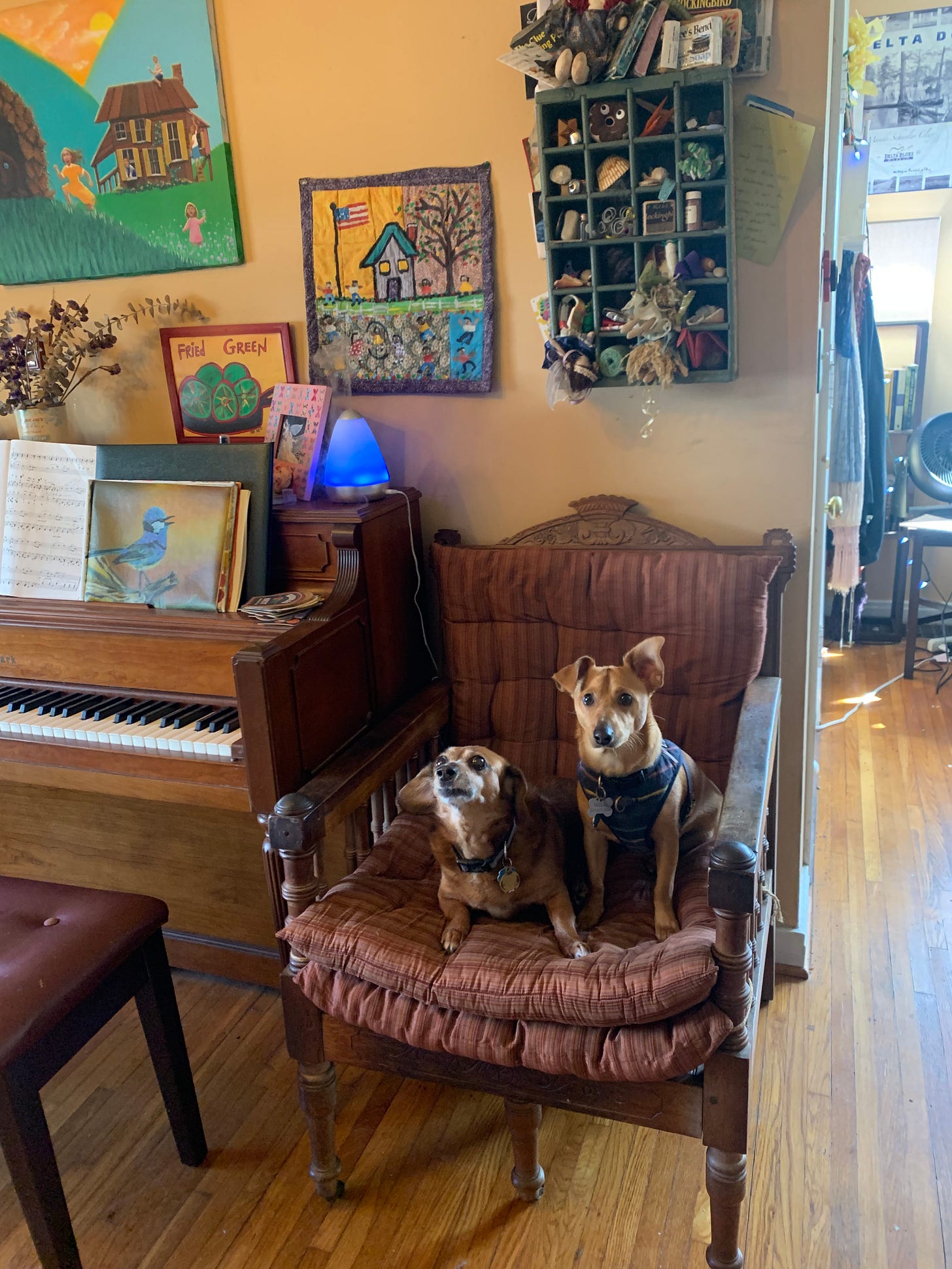
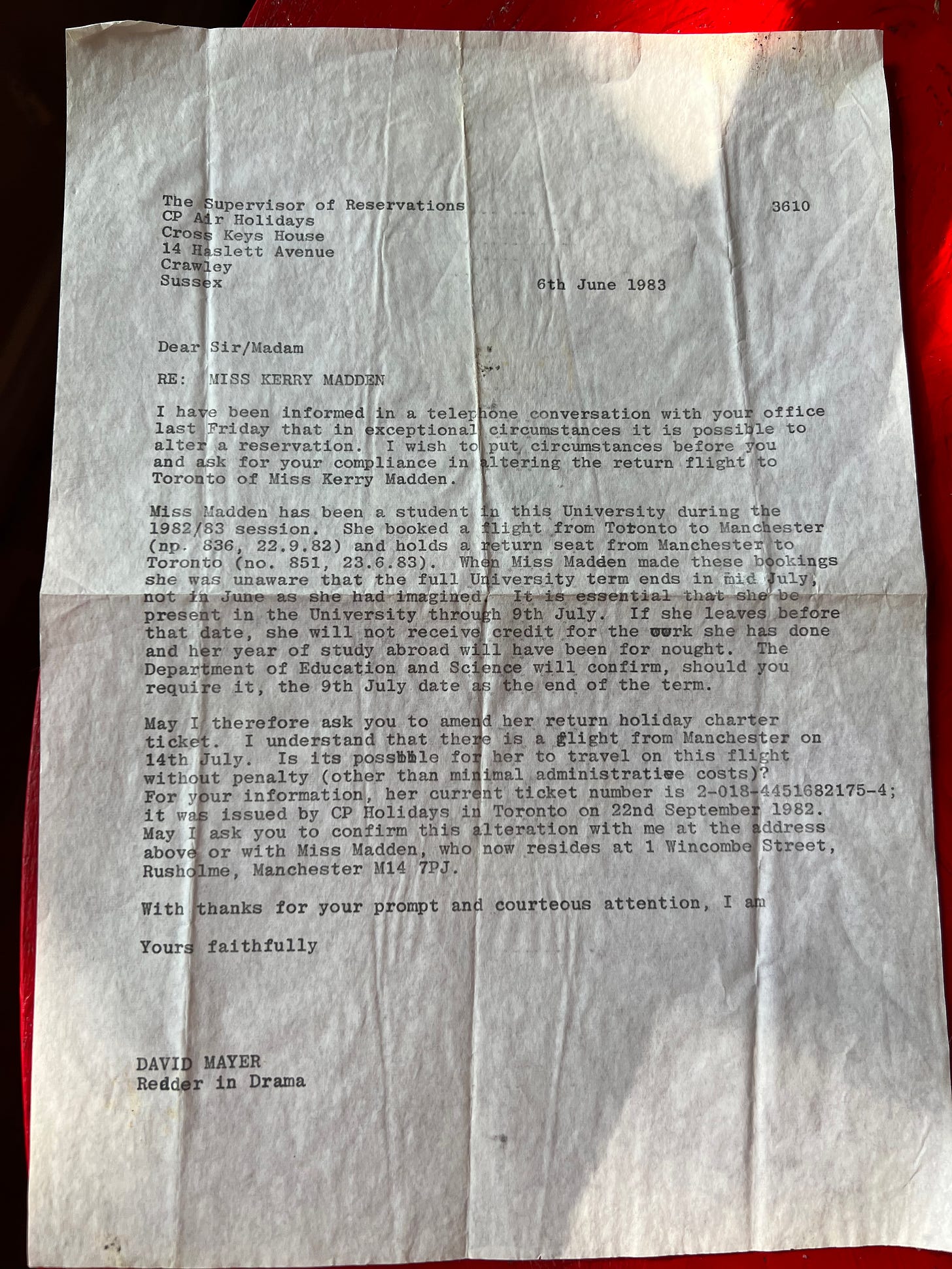
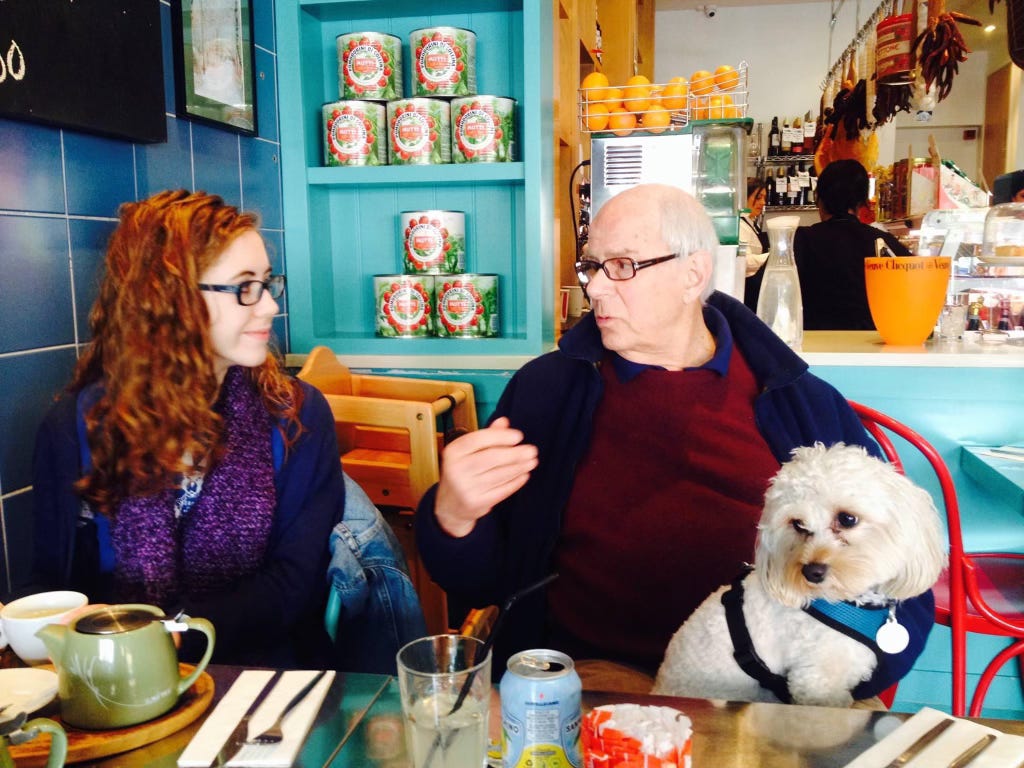
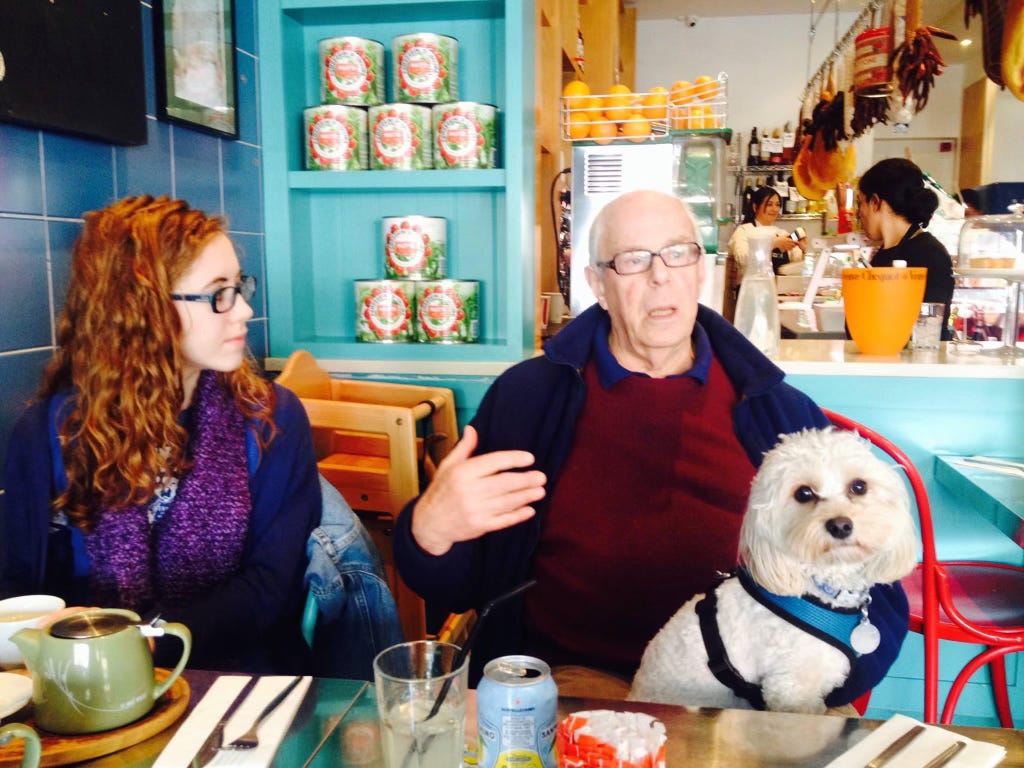
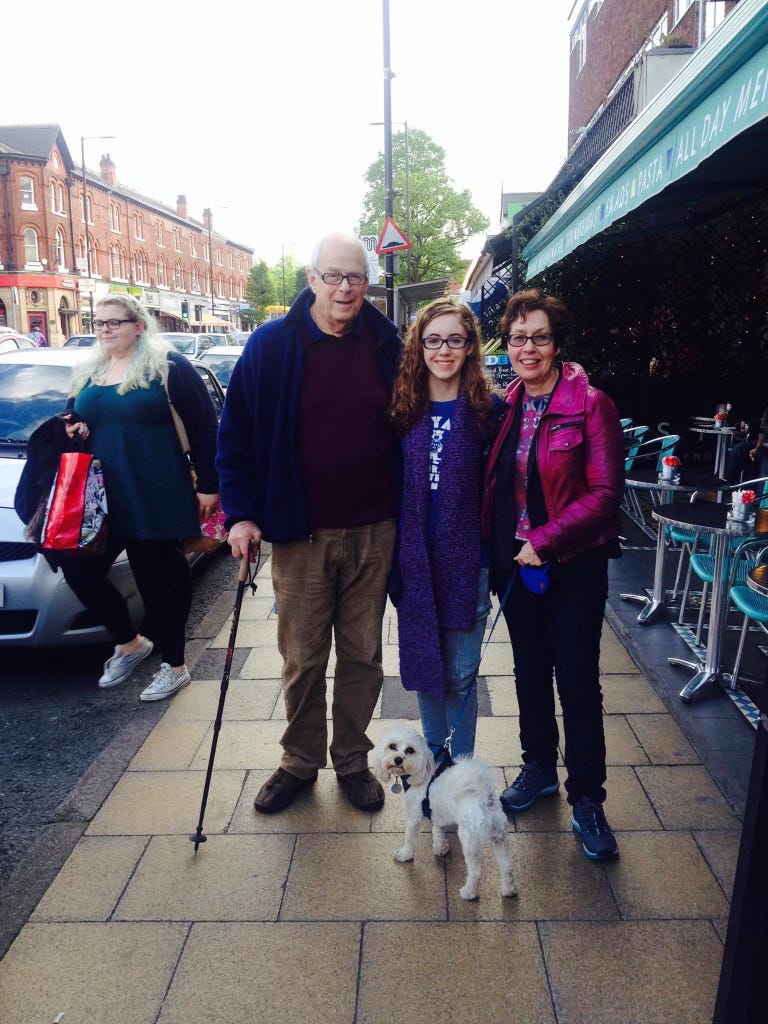
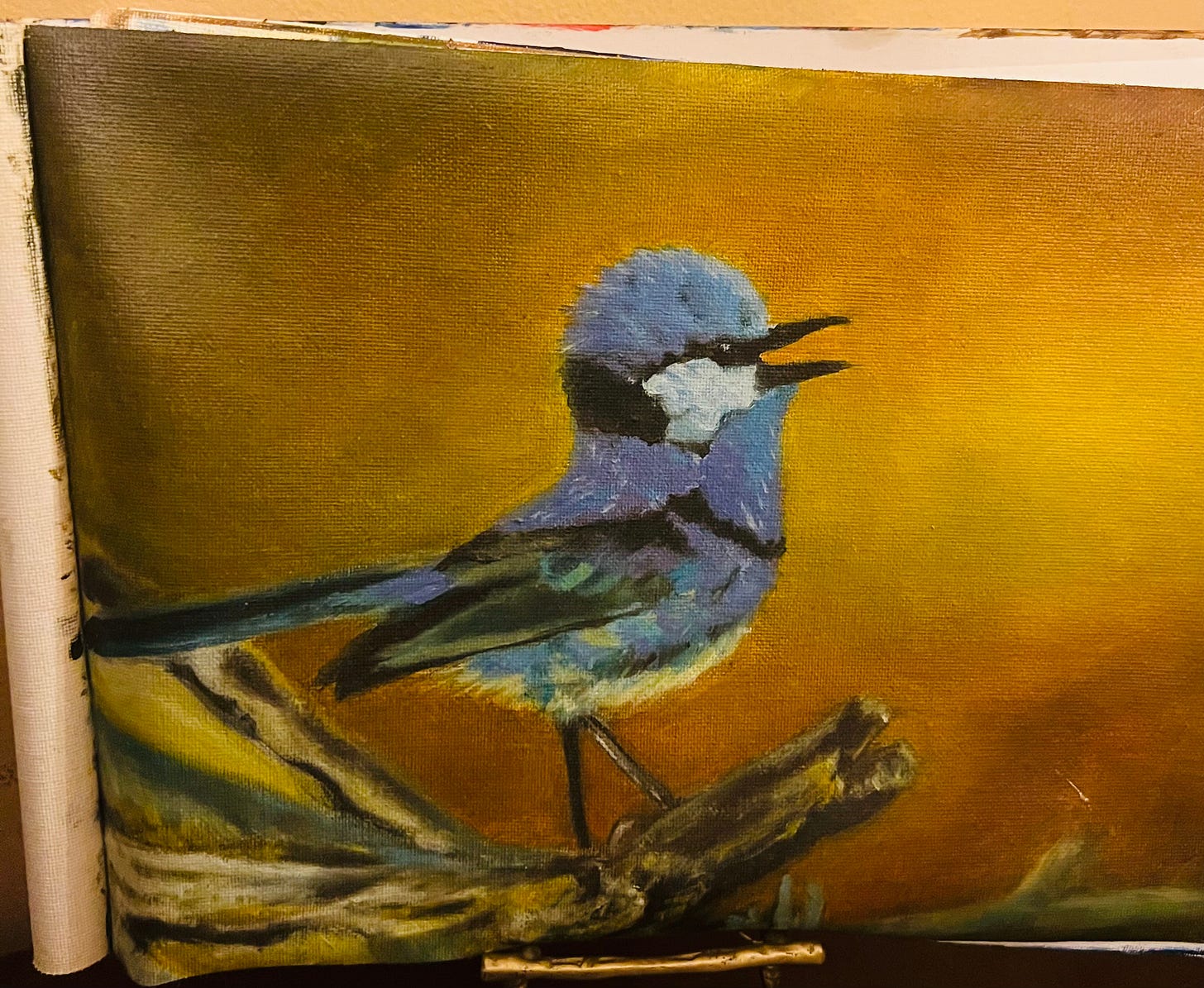
I am so sorry for your loss. What beautiful memories, blessed by Norah's art.
What novel is coming out? I remember when you were writing the one about Vulcan in Birmingham -- I was trying to write a YA that had Thomas Edison's house in it. The book failed at the halfway point, but when I went back through it recently I had written tons of Florida history narrative, which I am repurposing.
This is something I wrote about my mentor, Art Smith. (It also mentions your friend Zack). I was lucky that Art started in the UT writing program just as I did, as I had had a fiction class with a pruned-up little old lady who told me my work was vulgar. I have blocked her name!
https://www.knoxtntoday.com/remembering-poet-and-professor-arthur-smith/
Deepest sympathy Kerry, for the loss of someone who made such a marvelous difference to your life. Thank ou for sharing this with us, and may ou have great comfort and light with all that he gave you and your family.